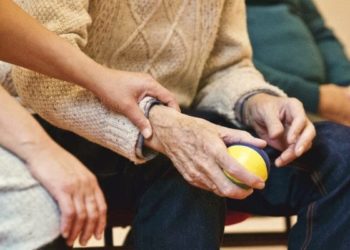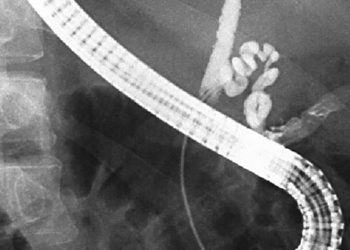The RAINBOW Trial: Integrated treatment for depression and obesity likely to have modest benefit
1. In this randomized controlled trial, integrated behavioral weight loss treatment, problem-solving therapy, and as needed antidepressant treatment led to a modest reduction in depression symptoms and weight loss at 12 months compared to care as usual.
2. The intervention was successful in non-Hispanic white patients, women, and those older than 45 years of age but relatively ineffective for men, those under 45 years of age, and Asian and Hispanic populations.
Evidence Rating Level: 1 (Excellent)
Study Rundown: Depression and obesity are often co-morbid, and patients with obesity are more likely to present with depression than non-obese patients. Though some randomized trials of integrated interventions for obesity and depression have been tried, they have been small and have not included men. In this multicenter, randomized controlled trial, patients who received an integrated behavioral weight loss treatment, problem-solving therapy, and as needed antidepressant treatment had a modest reduction in depression symptoms and weight at 12 months compared to care as usual. The intervention was successful in non-Hispanic white patients, women, and those older than 45 years of age but relatively ineffective for men, those under 45 years of age, and Asian and Hispanic patients.
While there was a significant difference with the intervention, it was of modest benefit, and so it is unclear if the intervention would be clinically significant or cost-effective. Further, patients in the intervention group had a higher rate of antidepressant prescriptions which was a potential confounder. The generalizability of this study is reduced due to the homogenous population of patients with relatively high socioeconomic status in a single-payer system in Northern California.
Click to read the study in JAMA
Click to read an accompanying editorial in JAMA
Relevant Reading: Randomized controlled trial of behavioral treatment for comorbid obesity and depression in women: the Be Active Trial
In-Depth [randomized controlled trial]: 409 patients (n = 204 intervention group; n = 205 usual care group) were recruited from primary care clinics among 4 medical centers in Northern California from 2014 to 2017. Patients were included if they were adults with a BMI >30, had depressive symptoms identified on the Patient Health Questionaire-9 (PHQ-9) of >9, and were excluded if they had serious co-morbidities, were pregnant, were unable to speak English, or planned to relocate. Included patients were mean age 51 years, 70% women, 71% non-Hispanic white, 69% with at least a college education. The intervention consisted of a 12-month intervention utilizing core components of the Group Life Balance (GLB) program grounded in social cognitive theory and Program to Encourage Active, Rewarding Lives for Seniors (PEARLS) utilizing problem-solving therapy and behavioral activation. The intensive treatment phase included 9 face-to-face sessions lasting 60 minutes and 11 home-based GLB videos watched at home. The maintenance phase consisted of 15-30 minutes, monthly telephone calls as well as self-care materials included handouts and DVD videos based on GLB for home. The intervention group had a greater decrease in BMI (-0.7 (95% CI -1.1 to -0.2)) and depression scores on the SCL-20.
Image: PD
©2019 2 Minute Medicine, Inc. All rights reserved. No works may be reproduced without expressed written consent from 2 Minute Medicine, Inc. Inquire about licensing here. No article should be construed as medical advice and is not intended as such by the authors or by 2 Minute Medicine, Inc.







